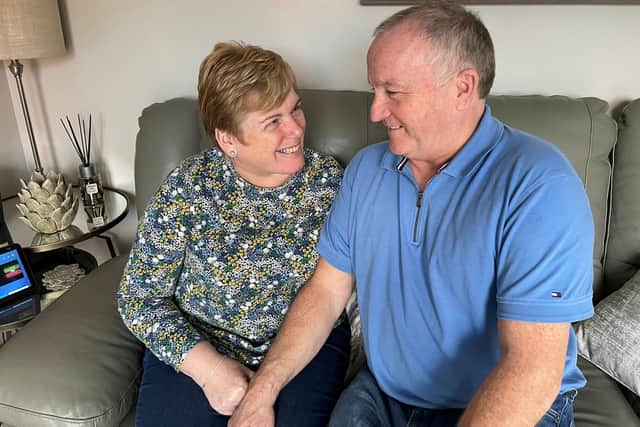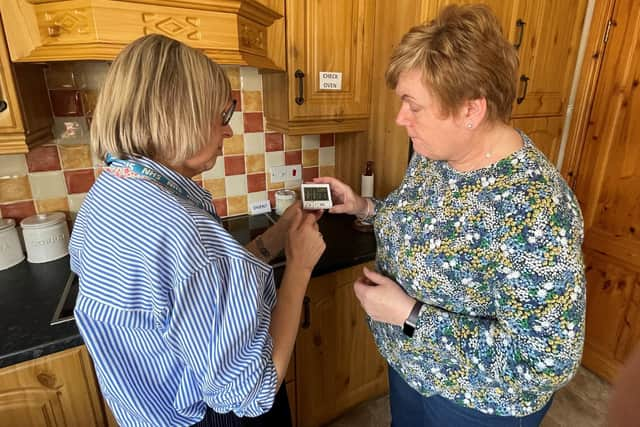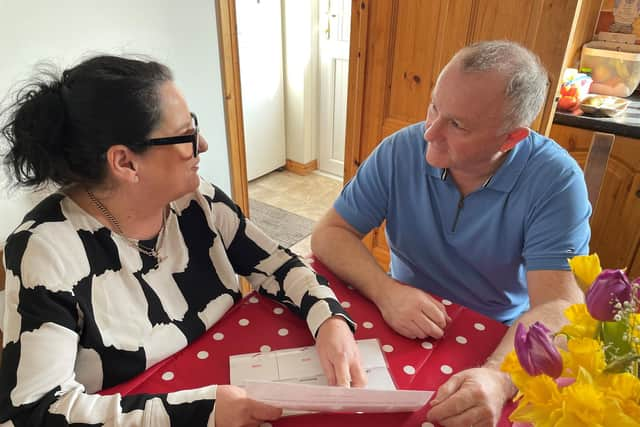Trust's community brain injury rehabilitation team provides lifeline to patients and families
and live on Freeview channel 276
Among them is Ken White, a devoted husband to Lynda who underwent major surgery on her brain to remove a tumour.
Their experience highlights the critical importance of support systems and the dedication of healthcare professionals such as the South Eastern Health Trust’s Community Brain Injury Rehabilitation Team.
Advertisement
Hide AdAdvertisement
Hide AdAs Lynda underwent life-altering surgery on her brain, leaving her and her husband Ken facing an uncertain road ahead, they both found unwavering support from the Community Brain Injury Rehabilitation Team.


Ken explained, "After the initial shock of Lynda coming through major brain surgery, it was discovering the long-term effects.
"After she came out of hospital, there was a visible scar from Lynda's surgery, the fatigue and certain things that didn't go away.
"Lynda's functioning and short-term memory have been affected but we were introduced to the Brain Injury Team and they have been an incredible support.
Advertisement
Hide AdAdvertisement
Hide Ad"Without the help and support of the Brain Injury Team, we would have really struggled.


"At the start, I wasn't keen to take the support offered, but as I realised Lynda's limitations, the recommendations and the insight provided by the Occupational Therapists became invaluable to help Lynda manage around the home.
"Having witnessed how Lynda was struggling with basic tasks, it showed me her brain was restricted in what she could retrieve and the level of detail she could cope with.
"The team gave us some strategies, some aids and adaptations such as timers and alarms to help with cooking tasks, whiteboards for memory recall, routine charts and visual reminders in key areas such as the kitchen. bathroom and bedroom.
Advertisement
Hide AdAdvertisement
Hide Ad"It's been a long journey. Lynda has now completed her sessions with the team. We have learned some new tricks and learned to live our lives differently."


Giving advice to those in a similar position, Ken added: "Be patient with yourself and be patient with those who are suffering a brain injury. You are on a journey and you will find your way. There is great help out there. The Brain Injury Team is a must."
The Brain Injury Team comprises Occupational Therapists, Speech and Language Therapist, Physiotherapists, Psychologists, Social Worker and a Rehabilitation Coach.
The Occupational Therapists in the Community Brain Injury Rehabilitation Team provide a programme entitled ‘Tackling things together’, which is a group session for the patient and family members to attend, together with others in a similar position.
Advertisement
Hide AdAdvertisement
Hide AdIt provides an opportunity to get issues out into the open and to discuss challenges. Individual memory and fatigue programmes are also available.
Occupational Therapy Team Lead, Jill-Holden Downes said: "Involving family members in the recovery journey is vital in terms of the patient's rehabilitation.
"When patients are initially referred to the service, they are confused and generally feel like the rug has been pulled from under them.
"It's about getting the patient to accept what has happened to them and identify the skills that they possess in order to manage the difficulties they have.
"It never ceases to amaze me to see how wonderful and resilient people are. I have been so inspired by individuals who are referred to our service."
